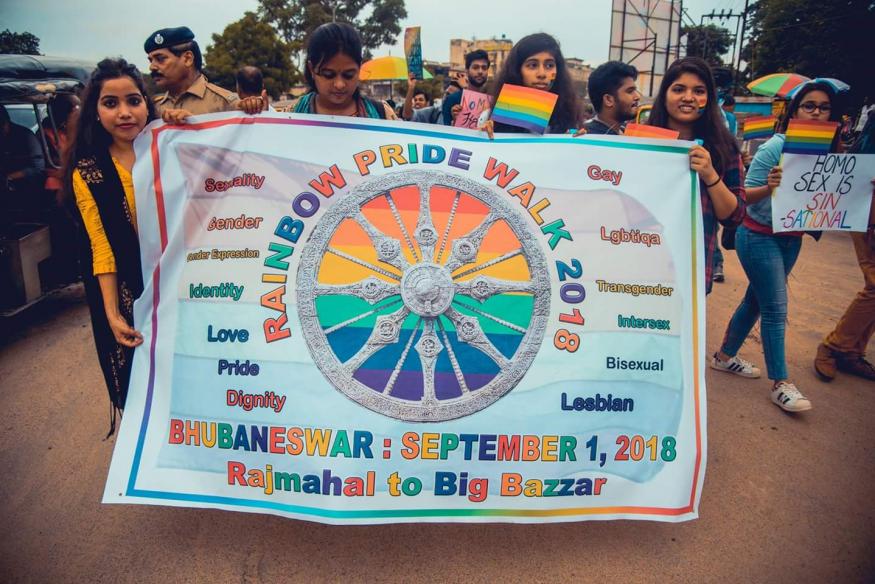“The disgrace of your barrenness, Madam, is not yours alone. Don’t you know that shame is collective? The shame of any one of us sits on us all and bends our backs. See what you’re doing to your husband’s people, how you repay the ones who took you in when you came penniless and a fugitive from that godless country over there”.
This small excerpt from Salman Rushdie’s “Shame” draws an impeccable portrait of Indian society and the instrument it uses to behave itself; Shame. From the popularity of religion, the celebrated propagation of teachings like “spare the rod, spoil the child” and the unanimous confidence in death penalty, it can be understood that human beings assume that the only way to learn restraint or order is by living in an animal fear of repercussions. This fear is institutionalized and solidified in form of an unwritten, “social constitution”, in which the majority has the power to build the ethics and etiquettes even for the minorities. They decide how marriages should look like, what boundaries women should stick within and what measure of skin is it modest enough to reveal, how ancestral privilege of one community above another does not qualify as persecution but government reservation for the latter does, and most importantly the “Love Laws”. In Arundhati Roy’s words, “Laws that lay down who should be loved. And how. And how much”. While the upper classes need not follow the society since money vests upon them the power of disobedience, and lower classes are not even included in the society, the biggest victim of these impositions are the middle class. If you have opinions that digress from the majority, you are an aberration. And the punishment is not decided in the courtroom but in backyards, streets and crop-fields, in form of lynching, honour killings and corrective rapes.
The closer I get to the LGBTQ community of Odisha, the more I understand their problems are so different from each other’s that they cannot be categorized under just one label. The Transgender community struggled for human rights till in 2014, India passed the “Rights of Transgender Persons Bill”. 69% of them in Odisha earn under Rs.5000 a month, are mostly involved in sex-work or begging and almost 74% of them have either never gone to school, or dropped out before completing secondary education. Homelessness and sexual harassment is rampant in their communities, the incidence of HIV and Hepatitis C is tremendous and they are devoid of even the basic facilities of public toilets.(PDF). While Odisha has been working tirelessly towards making the welfare schemes inclusive and has been blessed with the first transgender civil servant of India and other successful activists who are a part of the head councils in Universities, inclusion is still a far-fetched dream, if meeting subsistence isn’t.
But the problems of those who identify with LGBQ are different. They are the ones who are invisible in the medical and engineering schools, in joint families and team of directors in any company, the girl’s hostels and cricket teams and school classrooms, often alone, often frequenting the psychiatrists, often struggling through failed marriages. They are the butt of all jokes because of certain effeminate mannerisms, they are the ones cast as the comic in a play who throws himself on other men or makes a fool of herself by pestering heterosexual women, they are never taken seriously to a point they themselves do not understand what they are. I remember the times before we lost Robin Williams, when depression was not talked about openly and many of us lived in a perpetually miserable state of mind, unable to comprehend what it was, being oblivious of the term and the disease, unsure if it had any authentic basis.
Many of the LGBQ members, living in areas untouched by pride walks and vocal online discussions, live with the uncertainty of what they are and feel things they do not have a name for.
“There was some open space between what he knew and what he tried to believe, but nothing could be done about it, and if you can’t fix it you’ve got to stand it.”Annie Proulx says inBrokeback Mountain. In most cases, any physical or emotional interaction with another person of the same sexual orientation, makes them realize this was not just a “phase” or distraction. Then comes the struggle with denial; a denial that is self-inflicted not because they cannot accept their reality, but because they know they aren’t supposed to (socially and legally). The sword of shame hangs low by their neck, and they struggle to “correct” or “rectify” themselves in any possible ways. Often homosexuals turn into the biggest homophobes, because of what Carl Jung and Sigmund Freud had separately coined as “psychological projection”. Humans defend themselves against their own unconscious impulses or qualities by denying their existence in themselves while attributing them to others.
For the small ratio of community members who have made sense of themselves and are not ashamed of it, the fight has just begun. They must live dual lives. They must be discreetly present in dating sites and social media, under multiple pseudonyms, shielding themselves from blatant prejudice and discrimination by building a whole new identity which is less prone to shame and objectification. When the practicality of long-term serious relationships look bleak, they limit their desires to more easily achievable sexual encounters. But how can one ever resolve that which is not a problem? When will it be safe enough to not wear the cloak of fake identities and when will these discreet conversations end which make us feel nothing short of a criminal? For a gay or lesbian in a village, the end of this problem is in exorcism or corrective rapes. For one in the urban areas, it is marriage. In a world where babas with a following of millions, endorse homosexuality as a disease which can be cured with yoga and meditation, people have to choose isolated, depressing lives over joining an eternal fight for the fundamental right to love. Many courageous individuals build up the mental stamina to come out, but the farthest they can go is convincing their own parents to accept their “flawed” children.
When one’s existence is itself an anomaly, how does one go to work, eat lunch and have a sound sleep every day without listening to how their heart beats in a language too different and alien for the world?
Abridged versions taught in schools of “The Diary of a Young Girl” often emit out the parts where Anne Frank wrote about her bisexuality and the kiss she had with her best friend. “Every time I see the naked figure of a woman, such as Venus, for example, it strikes me as so wonderful and exquisite that I have difficulty in stopping the tears rolling down my cheeks. If only I had a girlfriend,” she wrote. Social censorship works in unbelievable ways, such that the need for intersectionality even within the LGBTQ community is hardly spoken of. Lesbians have a lower representation than gays in collectives formed within the community owing to higher susceptibility to prejudice and higher social cost. Terry Castle rightly pointed out “It would be putting it mildly to say that the lesbian represents a threat to patriarchal protocol: Western civilization has for centuries been haunted by a fear of ‘women without men’—of women indifferent or resistant to male desire.”
It’s unfathomable to think of how despite the obstacles, this community has always carved its worthy space in the canvas of history. Virginia Woolf, Alan Turing, Frida Kahlo, Tim Cook, Vikram Seth, Angelina Jolie and the list will always go on. “The only way to deal with an unfree world is to become so absolutely free that your very existence is anact of rebellion”, Albert Camus had said and I haven’t seen a better manifestation of this life lesson, but in the minorities.
- Pride and The Adherent Prejudice in Odisha - September 25, 2018

